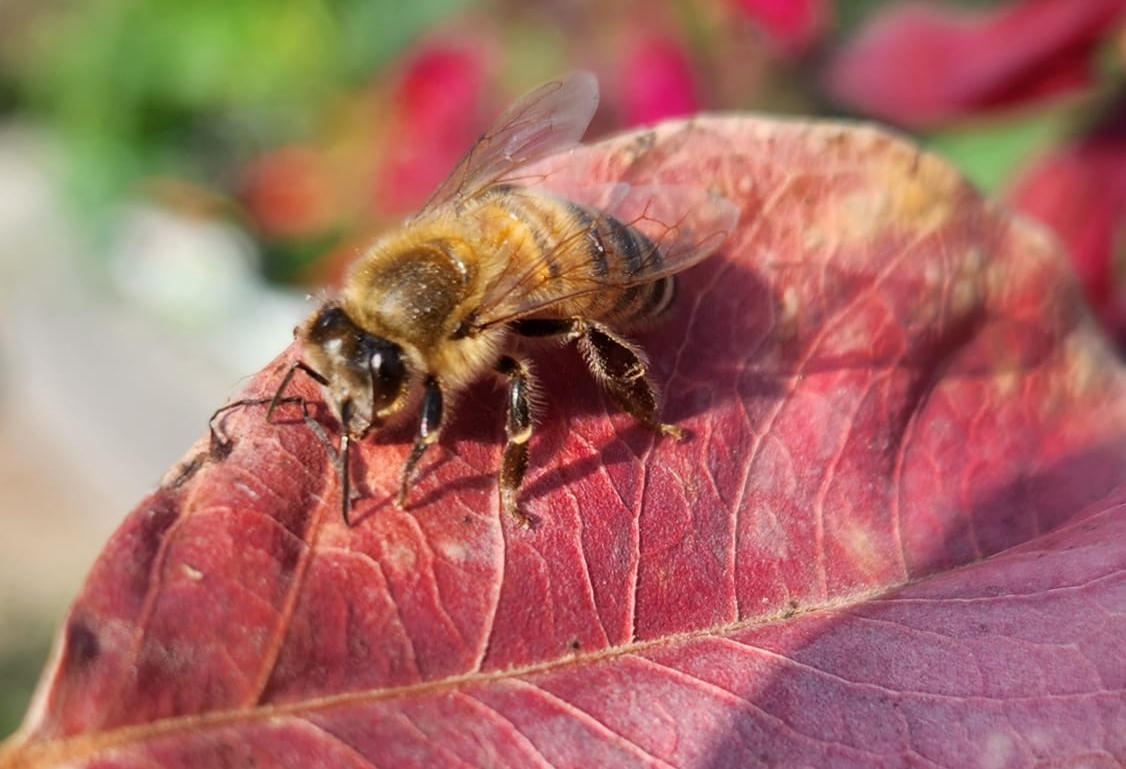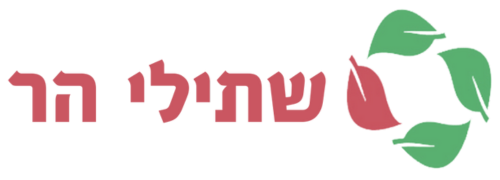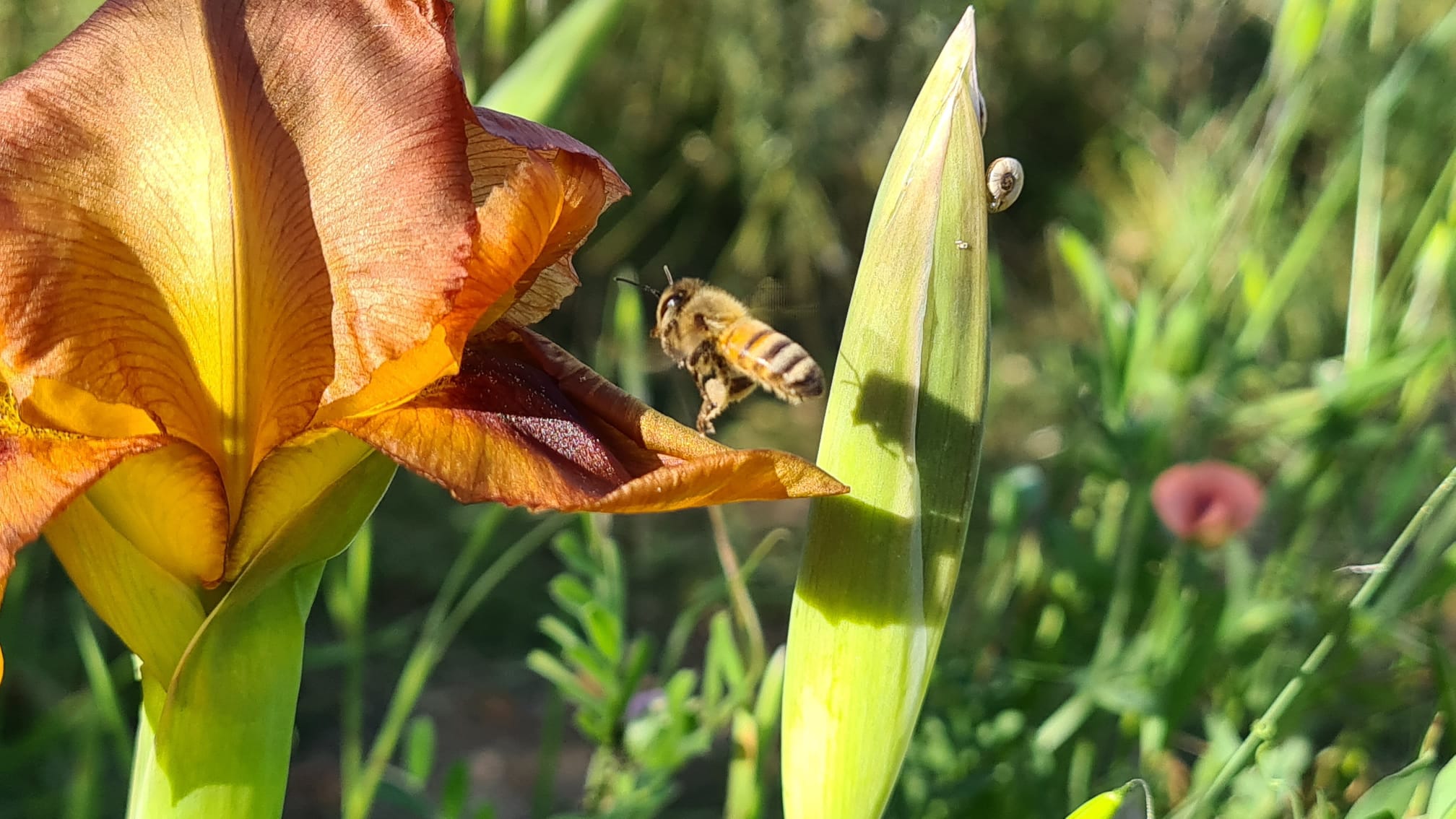
International Bee Day

In recent years, there has been a lot of talk about the importance of bees as honey producers and as crop and wild plant pollinators.
Beetles, moths, butterflies, wasps and even birds and bats are also important pollinators in our garden. All, including the bees, are also extremely important in pollinating wild plants, some of which have undergone co-evolution and depend on them to survive.
Today the main threat to bees are parasites, diseases, pesticides, reduction of their natural habitats and global warming that severely affect the world's bee populations. Many efforts are being made to strengthen and heal the bee population.
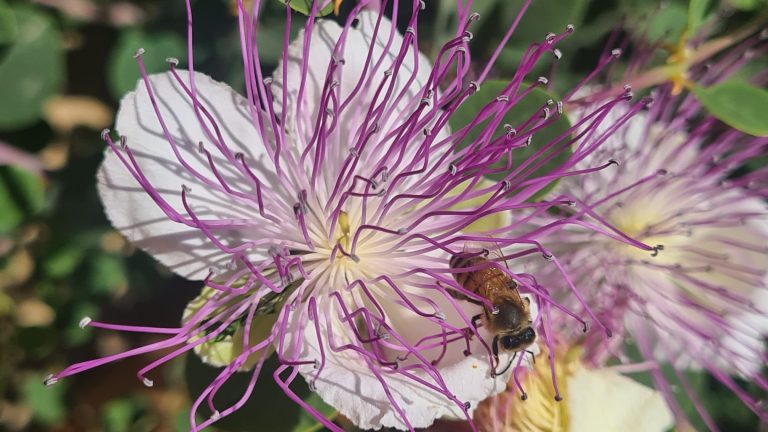
A bit about the bees and their importance:
🐝 There are about 1000 species of bees in Israel alone and more than 20,000 in the world, most of which are solitary bees and do not establish common hives or swarms. All species in Israel are not aggressive and rarely sting.
🐝 The honey bees represent a small minority of species, with a complex and fascinating social structure and since they are nurtured by man, they consist the majority of bees in the world.
🐝 In Israel, a densely populated country with a rapidly growing population, the natural areas are diminishing and being replaced by urban parks and private gardens. However, even there one can still help the dwindling bee population as we have an interest for bees to thrive in our gardens so that we can pick lemons, apricots, avocados and many other fruits and vegetables that we cultivate.
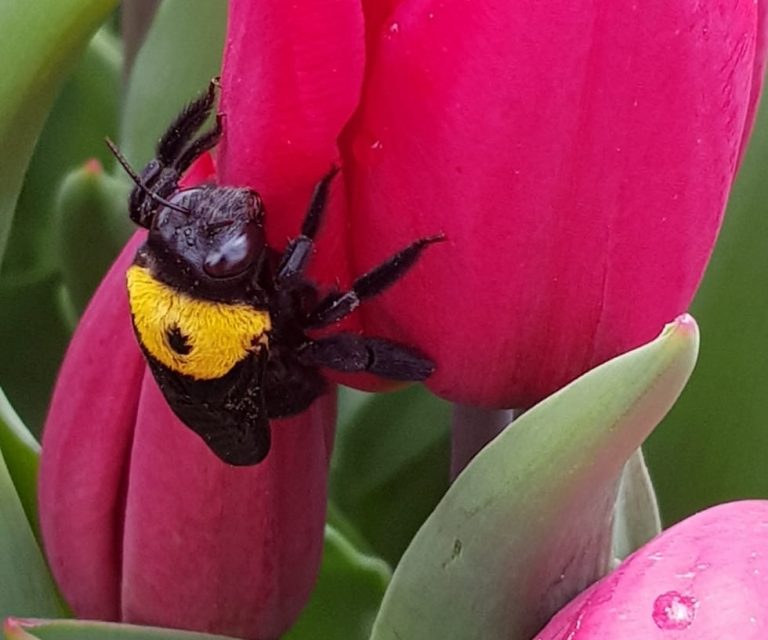
Usage of pesticides:
Often, unknowingly, we harm the bees that visit our gardens: many pesticides, especially those that linger on or inside the plant for some time, can poison the bees that come to pollinate the flowers.
Confidor, a systemic pesticide has become very common in treating garden pests in the past years and due to being very harmful to bees, has recently been banned from use in Europe.
Confidor is very effective against aphids and easy to apply; Watering with it in small quantities makes the whole plant toxic to aphids and other pests, but also to bees, for months. Many think it’s a wonder substance and use it against leaf diseases (ineffective) or any unrecognized problem, or exaggerate with the aphid’s issue at hand, which often disappear on their own in late spring.
We understand that in some cases it is difficult to avoid the usage of Confidor, and since it is still approved for use in Israel, we sell it to customers while clarifying the harm it can cause and the importance of reducing its use.
We call on all of our customers to use all pesticides sparingly and only when it is essential.
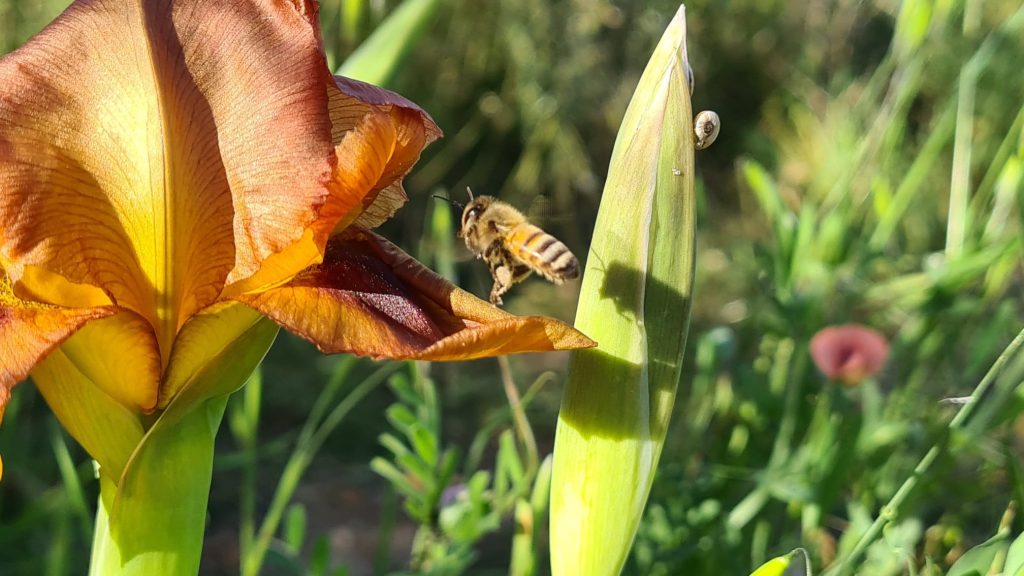

Here are some plants and groups of plants that are especially loved by bees with an emphasis on spreading the blooming season over the year:





Bloom Dispersal: The carob blooms in the fall. Some rosemary varieties, such as Severn sea, begin to bloom in autumn. Teucrium fruticans is a long-flowering shrub that blooms from autumn to spring. Aloe species bloom in winter and spring. Spring is naturally abundant in blooms and in summer Nepetha, Proveskia, Leucophyllum, Callistmon and a large selection of sages will flower.
We recommend to have a diverse garden, which will contain as many as possible of the plants we mentioned, while emphasizing the central role of Sage species and cultivars (some bloom throughout the year while others will bloom at different seasons). They are very beautiful and attract bees, butterflies and hummingbirds and some are also used for cooking and tea which makes the beneficial for humans and pollinators alike.
Think of the bees affectionately today and every day of the year and let us wish them another hundred million successful years.
